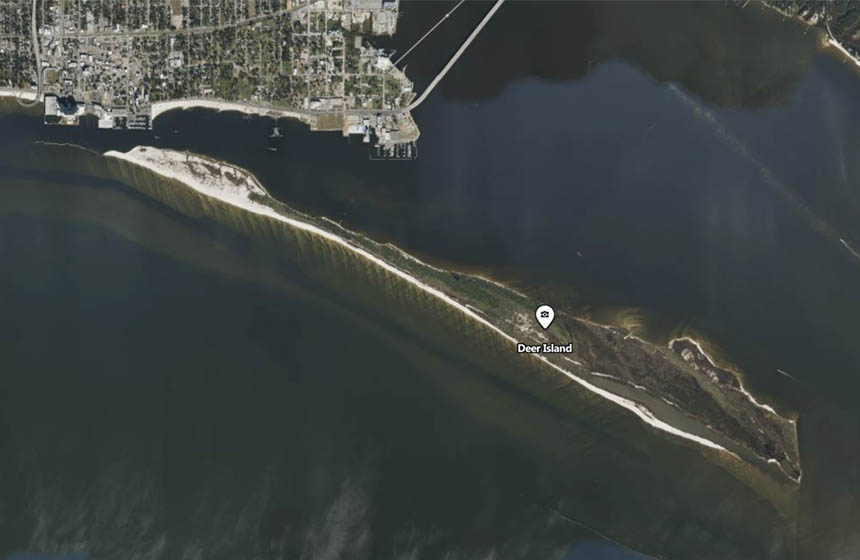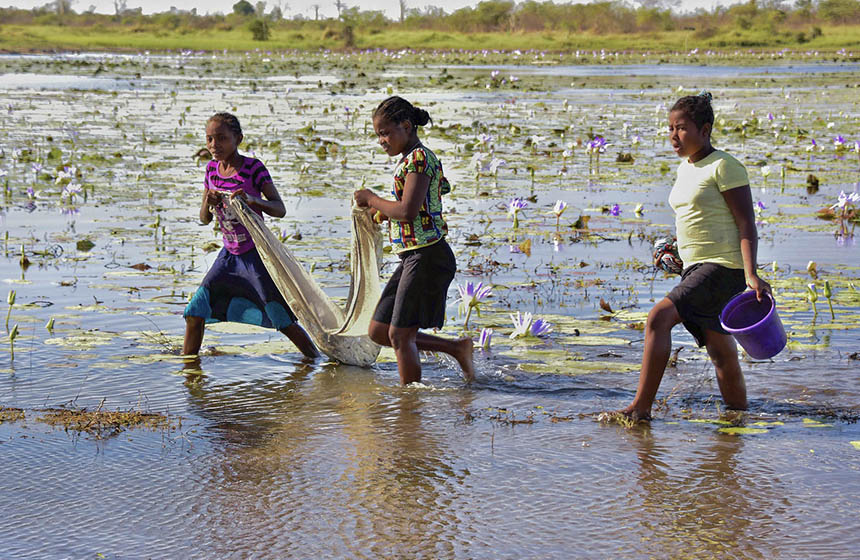Deer Island Marshland Restoration Project
The Deer Island Restoration project uses revegetation and nearby dredging material to restore the barrier island’s footprint and increase local community storm protection.
Nature-based Intervention:
Deer Island is a barrier island in the Mississippi sound which has recently undergone restoration efforts to reverse past degradation. Dredging material from nearby navigation channels was put to beneficial use to expand the shoreline and restore areas which has been degraded by erosion. This was paired with marshland restoration and vegetation planting on the island to accompany the newly creased shorelines. This resulted in the creation of new aquatic and terrestrial habitats for local species. Furthermore the plants play a key role in stabilizing the new shoreline and limiting the erosion of the newly transferred materials.
Overview of context and outcomes:
The Mississippi sound is prone to being hit with high intensity hurricanes. Historically these hurricanes have caused large scale damage to Deer Island and surrounding communities. Since 1850 the island has experienced near continuous erosion resulting in the loss of around 300 acres of land area. This equates to almost one third of the islands original 1850 footprint being lost. As climate change leads to higher sea levels and more severe storms the rate of erosion was likely to increase without intervention putting the local community at greater risk.
Case effectiveness on
Climate change
The restoration of marshlands on the island and the revegetation of shorelines will likely lead to increased plant biomass and an increase in carbon sequestration on the island.
This island lies juts outside of Biloxi Harbor and acts as an important barrier to storms for the local community. The restoration and stabilization of the island represents key improvements to help protect against the increased threat sea level rise and high intensity storms due to climate change.
Ecosystem health
Ecological effect: PositiveThe restoration of marshland and coastlines helps to improve habitat quality and create new habitats for local species to utilize. The island is an important habitat for migratory birds and is also a nesting ground for sea turtles.
Socioeconomic outcomes
The project helps support local livelihoods through the storm protections provided to the Biloxi Harbor and the safe disposal of dredging materials needed to allow navigation in the region. The created habitat also supports local fisheries.
Governance
The project is run as a collaboration between Federal, State, and Local Governments. The two main agencies responsible for the implementation and monitoring of the project are the Mississippi Department of Marine Resources and the US Army Corps of Engineers.
Finance
The project is financed through the Mississippi Department of Marine Resources and the US Army Corps of Engineers.
Monitoring and evaluation
The University of Southern Mississippi Marine Education Center, in partnership with the Mississippi Department of Marine Resources, conducts field monitoring of the island. The Mississippi Alabama Sea Grant Consortium has also developed a program that allows local teachers to participate in workshops monitoring the changing coastlines on the island.
Trade-offs and limitations
No information yet available on tradeoffs.

Intervention type
- Created habitats
Ecosystem type
- Coastal
- Saltmarsh
Climate change impacts addressed
- Soil erosion
- Coastal inundation
- Storm surge
Instigators
- State/district/local government agency
- National government/agency
Societal challenges
- Climate change adaptation
- Disaster risk reduction
Outcomes
- Food security: Not reported
- Water security: Not reported
- Health: Not reported
- Local economics: Positive
- Livelihoods/goods/basic needs: Not reported
- Energy security: Not reported
- Disaster risk reduction: Positive
- Rights/empowerment/equality: Not reported
- Conflict and security: Not reported
- No. developmental outcomes reported: 4
Resources
Read resource 1Read resource 2
Read resource 3
Literature info
- Grey literature



